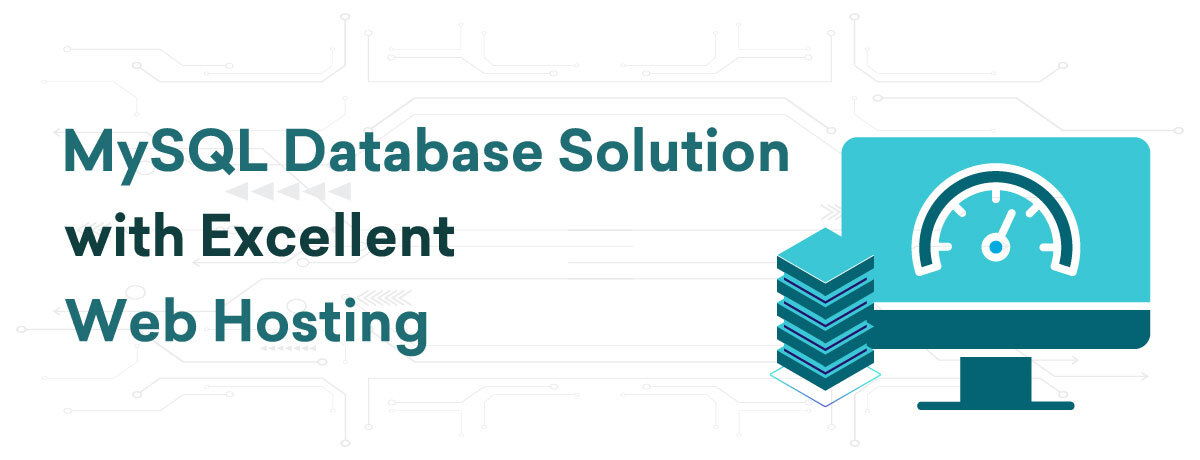Web hosting is the foundation for any online presence, whether it’s a simple blog, an e-commerce site, or a complex web application. As businesses grow and their needs become more sophisticated, the demand for robust database solutions also increases. MySQL, an open-source relational database management system, is a popular choice for many web hosting environments due to its reliability, scalability, and ease of use. For those looking to support unlimited MySQL Database on their hosting accounts, there are several considerations and best practices to ensure optimal performance and management.
Table of Contents
Choose the Right Hosting Plan
It’s crucial to consider all of the resources accessible while selecting a plan. A hosting service may promise infinite databases, but for a database to operate effectively, it needs a specific number of server resources. Should the hosting plan be insufficient in terms of CPU power, memory, or storage, your databases’ performance may need to improve.
Optimize Database Performance
Performance optimization must be carefully considered while supporting an infinite number of MySQL databases. Here are some helpful strategies:
Indexing: Correct table indexing can greatly expedite the retrieval of data. You can make sure that your databases function well even when they are under a lot of stress by cutting down on the time it takes to find data.
Query Optimization: Write SQL queries that are optimized to cut down on pointless computations. This may entail making the most use of joins, eliminating subqueries whenever feasible, and making sure your queries are as simple as possible.
Connection Management: To cut down on the overhead of creating new database connections, use persistent connections. But be aware of any connection restrictions imposed by your hosting company.
Caching: Put caching techniques in place to lighten the strain on your MySQL databases. Database queries can be reduced and speed can be improved by keeping frequently requested data in memory.
Regular Maintenance: To quickly detect and fix performance issues, carry out routine maintenance operations including clearing out unnecessary data, optimizing tables, and keeping an eye on database logs.
Scalable Storage Solutions
As the number of databases grows, so does the need for scalable storage solutions. Ensure that your hosting plan offers expandable storage or consider integrating cloud storage solutions like Amazon S3 or Google Cloud Storage to offload some of the data. Utilizing scalable storage ensures that your databases can grow without being constrained by physical disk space limitations.
Security Best Practices
The complexity of data security grows while managing several MySQL databases. The following are some crucial security procedures:
User Privileges: Give each database’s users the proper permissions. Limit access using the least privilege approach and refrain from utilizing the root user for routine tasks.
Regular Backups: To guarantee that all databases are routinely backed up, implement automated backup systems. For extra security, think about utilizing both off-site and on-site backups.
Encryption: When sensitive data is in transit or at rest, encrypt it. MySQL offers built-in encryption features for storing data in your databases, and it supports SSL/TLS for secure data transfers.
Monitoring and Alerts: Install monitoring software to monitor database activities. Alerts can be used to inform you of suspicious activities or possible security breaches.
Efficient Database Management
It can be difficult to manage a big number of MySQL databases. To make management more efficient:
Database Naming Conventions: For ease of maintenance and to prevent confusion, give your databases distinct names.
Automation Tools: For regular operations like backups, upgrades, and monitoring, use automation tools like scripts or database management software.
Documentation: Keep detailed records of your user permissions, database setups, and maintenance plans. For troubleshooting and orienting new team members, this will be really helpful.
Conclusion
It is possible to support an infinite number of MySQL databases in a web hosting environment with the appropriate preparation, tools, and administration techniques. Through the selection of an appropriate hosting package, performance optimization, implementation of scalable storage, strong security, and effective database management, you can build a strong and adaptable infrastructure that can handle the demands of your expanding online business. These best practices can help you get the most of your MySQL databases and make sure they run effectively at scale, regardless of the size of your company.



